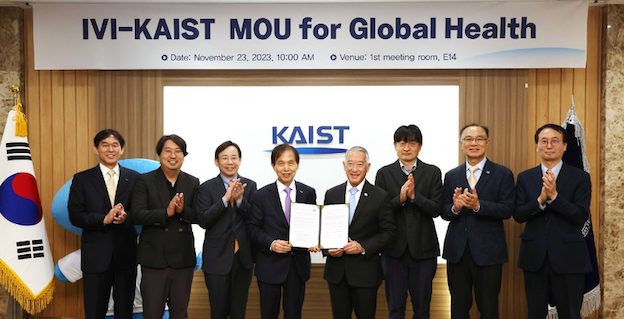
The International Vaccine Institute (IVI) and the Korea Advanced Institute of Science and Technology (KAIST) have signed a Memorandum of Understanding (MOU) for global vaccine research collaboration.
Under the agreement, the two sides will work together to accelerate the development of innovative new vaccines and promote global health by combining and synergizing their respective strengths.
The two organisations will collaborate in four main areas: vaccine immune response analysis projects; collaborative research with global health partners; strengthening research and education in the medical and life sciences field; and improving access to healthcare and vaccines in developing countries.
Firstly, the two organisations will jointly conduct immune response analysis of various vaccines, including SFTS, hantavirus, and adenovirus vaccines, which are being developed by IVI, by utilising the human immune response analysis platform developed by KAIST to accelerate the development of these and other vaccines. Notably, through collaborative projects, they plan to conduct molecular-level cellular immune response analysis, seek to discover vaccine immune response biomarkers, and provide training on analytical techniques.
Also, the two organisations will seek ways to collaborate with global health partners including the Kenya-AIST, which is being established in Kenya to foster advanced human resources in science and technology, and pursue diverse cooperation opportunities at KAIST Osong Medical Campus, which is in the process of establishment in the bioindustry cluster of Osong, Korea with the aim of promoting research and education in the medical and life sciences.
They will also work together to explore ways to promote epidemiological studies, vaccination campaigns, and healthcare infrastructure improvement projects in developing countries, and conduct multidisciplinary research collaborations on intellectual property rights and regulations in an effort to improve access to healthcare and vaccines in developing countries.




